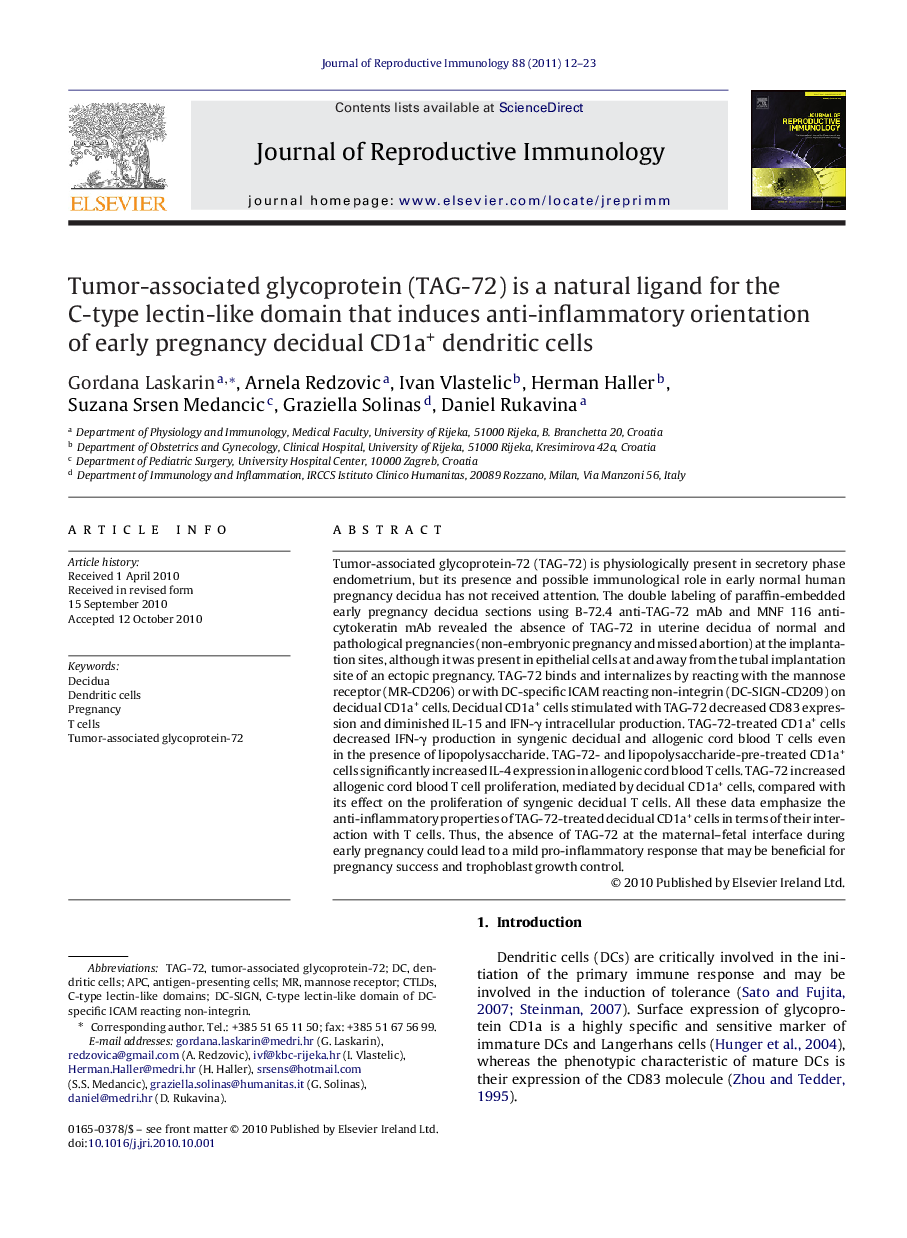| Article ID | Journal | Published Year | Pages | File Type |
|---|---|---|---|---|
| 3964654 | Journal of Reproductive Immunology | 2011 | 12 Pages |
Tumor-associated glycoprotein-72 (TAG-72) is physiologically present in secretory phase endometrium, but its presence and possible immunological role in early normal human pregnancy decidua has not received attention. The double labeling of paraffin-embedded early pregnancy decidua sections using B-72.4 anti-TAG-72 mAb and MNF 116 anti-cytokeratin mAb revealed the absence of TAG-72 in uterine decidua of normal and pathological pregnancies (non-embryonic pregnancy and missed abortion) at the implantation sites, although it was present in epithelial cells at and away from the tubal implantation site of an ectopic pregnancy. TAG-72 binds and internalizes by reacting with the mannose receptor (MR-CD206) or with DC-specific ICAM reacting non-integrin (DC-SIGN-CD209) on decidual CD1a+ cells. Decidual CD1a+ cells stimulated with TAG-72 decreased CD83 expression and diminished IL-15 and IFN-γ intracellular production. TAG-72-treated CD1a+ cells decreased IFN-γ production in syngenic decidual and allogenic cord blood T cells even in the presence of lipopolysaccharide. TAG-72- and lipopolysaccharide-pre-treated CD1a+ cells significantly increased IL-4 expression in allogenic cord blood T cells. TAG-72 increased allogenic cord blood T cell proliferation, mediated by decidual CD1a+ cells, compared with its effect on the proliferation of syngenic decidual T cells. All these data emphasize the anti-inflammatory properties of TAG-72-treated decidual CD1a+ cells in terms of their interaction with T cells. Thus, the absence of TAG-72 at the maternal–fetal interface during early pregnancy could lead to a mild pro-inflammatory response that may be beneficial for pregnancy success and trophoblast growth control.
